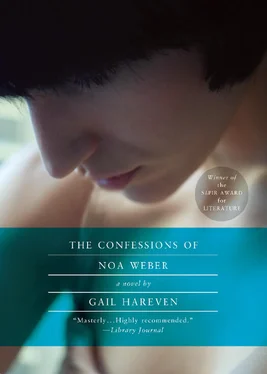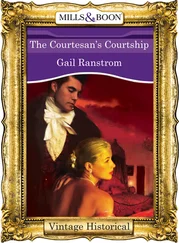Alek laughed and said that I was quoting again. “Quoting who?” I asked. “Lermontov. It’s impossible to understand Russia with the intellect. Another sentence quoted by the wrong people at the wrong time. You can say that the Empire of Evil is something the intellect cannot comprehend, and the Israeli intellect never comprehended, but from your mouth it sounds completely different.”
By night on my bed I sought him whom my soul loveth. And perhaps it is not him whom my soul loves that I am seeking, but simply my soul.
With the years, I think, I have been purified. Facing him, or on his behalf, for him or because of him, in one way or another, I have been purified. At night, on many nights, I am able to let the longings go, to touch them, and then to dispel them inside me. Able to touch the absence as if it were a presence. Jealousy was never cruel as the grave for me, and for some reason I hardly tasted bitterness. Perhaps it was only for this that he was given to me.
Sometime close to the meeting in the Hotel Petra I stopped sleeping around, which is another way of saying that in all the many years since then I have abstained from other men. I don’t know why, or why precisely then, it wasn’t a decision because I didn’t decide, the need to go the way of all flesh simply disappeared. Not owing to disgust, because I wasn’t disgusted, I simply lost the taste for it; if it had disgusted me perhaps I would have carried on.
The urge itself didn’t go away, perhaps it didn’t even diminish, but like a nun I choose to resolve it, or to rid myself of it, with my own hands. From time to time I still find myself turned on by the idea of a little fling, but everything needed to get there, and in fact also the imaginary act itself, seems like a ridiculous hassle: the smell of a strange scalp, crackling curls, strange breath, wet lips, the wetness of strange lips on my breast, the wrong touch and bodyweight thrusting into me — what is it all for? The body will do what bodies do — but for what?
In my wild decade I gained such a reputation that nobody noticed when I stopped having sex; and of the possibility of finding me a life partner all my friends had despaired long ago. That “Noa needs a man in her life like a fish needs a bicycle” could be a statement of praise or of resignation, but the absence of sexual need and renunciation of the spasms of pleasure is for some reason unforgivable. Did I say unforgivable? So let them not forgive me, and I won’t forgive myself either, because what does it really matter? I, if I haven’t noticed, am increasingly evading the eyes even of those I invited to hear my confession. Escaping the impediment of words. And it is not their peace that I seek, but a different peace, a peace of my own.
OVER THE COURSE OF THE YEARS
Over the course of the years I kicked out in all kinds of directions in an attempt to “liberate myself from dependency,” and what I did definitely succeed in liberating myself from was the concrete dependency. I don’t need him to support me. I don’t need him to protect me. And I don’t turn to him for advice and encouragement, not even in my imagination. Sometime around Daniel’s birth I brought up the subject of the divorce again, I even went to the Rabbinate, where they opened a file and set a date for a hearing. And when the date arrived Hagar was sick and I couldn’t find a babysitter, and after that we didn’t bother to set a new date. If he had asked me, if he had shown any interest in the subject, we would have been officially divorced, he would have married his common law wife officially, and that too would not have made any difference. Today it’s clear to me that it wouldn’t have made any difference, and perhaps I knew it then too.
The paradox of love is that it enslaves you to one person, and by so doing liberates you from other things. It liberates you to the point of indifference, which increasingly seems to me to be true liberty.
I did not adopt Alek’s views, his instinctive detestation of sociopolitical ideology, I still believe in “equality,” in “rights,” in “social responsibility,” and in “justice,” only justice is too obvious to arouse my curiosity, and the idea of a “healthy, decent society” doesn’t make heaven and earth breathe and animate the world for me. In the end all that remains is the utterly unthrilling work required to get there. Official forms in five copies on recycled paper.
Anger still comes to me more easily than human compassion, and anger still makes reality forcefully present to me, but over the course of the years the anger too has increasingly become an automatic response; and perhaps in this too I have been influenced by Alek, who is never astonished like me by human wickedness.
It would have been reasonable to assume that the dulling of my senses in this respect would undermine Nira Woolf’s pursuit of justice, but the truth is that it had no effect on my writing. I have already said that I am not a real writer.
As with the writing so too with the work at the fund, the emotional unresponsiveness only improved the quality of my work, so that if previously I had wallowed in self-accusation for what I called my coldheartedness, I did so for no good reason and without justice.
The problem in leading a double life has nothing to do with justice — with the proper allocation of emotional resources, with the right investments and fair trade in feeling. Very little feeling can suffice to behave decently and be of use.
The problem with leading a double life is that the everyday part of that life seems to you — not less real, I was always realistic — but somehow less true. As if lacking inner light and seeking a crack through which the light from outside can stream in and rise.…
I should have said now: Light … what light are you talking about? Neon light? The blinding summer sunlight at noon today? The orange light of the street lamp?
I should have said: A kettle is a kettle and a table is a table, and neither of them needs a light and certainly not a crack.
I should have said it and now I’ve said it, so what? I’m tired of these wisecracks. Which of course aren’t wisecracks but wisdom. But I’m tired of this wisdom, too.
When I resigned from the fund in January of ’96, I had the feeling again that I needed to clean myself and my life out a little. This was how I thought of it then, in terms of cleanliness, even though I had no idea of what this cleanliness I was seeking might be. Mainly, I remember, I wanted to talk less. Before this there were days when I had seven meetings in my planner, days when I met dozens of people, and the outside world had begun to make me ill. More and more I felt sickened by so many contacts and so much talk, sick of myself and my talking, and tainted, until I sometimes felt as if a moldy lump was sitting in my throat and incorporating more and more particles of pollution with every additional sentence I uttered.
In the months before I left, Nira Woolf took up most of my leisure hours, but the plot of The Stabbing unfolded reluctantly, as if I was serving one more tour of duty in the reserves. In a fit of spite I destroyed one of her monstrous cats, and laid its carcass at the entrance to her apartment. In another fit of spite I decided to leave her at the end waiting for the results of an AIDS test, without telling her that she hadn’t been infected. If I said before that the world doesn’t need my feelings, The Stabbing is one of my proofs, because when the book came out none of the readers noticed the change.
For the second time the movie rights to Compulsory Service were acquired by the same producer, and this time too I assumed that nothing would come of it, but in the meantime a handsome sum was about to be transferred to my bank account. The manuscript of The Stabbing was handed to the editor. For almost seventeen years I had been putting money into a pension fund. I have an apartment that I can’t be thrown out of, my needs are modest, and I could afford to stop working. Hagar, who was planning to go to America and had already applied for a grant which she would no doubt get, expressed reservations: “But what will you do all day?” And I reassured her by saying that now I would have time to research and write in the mornings, which was what I had wanted for a long time — to write in the mornings. Perhaps I would register for a course at the university, I would find a new field of interest, and who knows, maybe I would come to bother her with a prolonged visit to New York, because I had never been there.
Читать дальше












